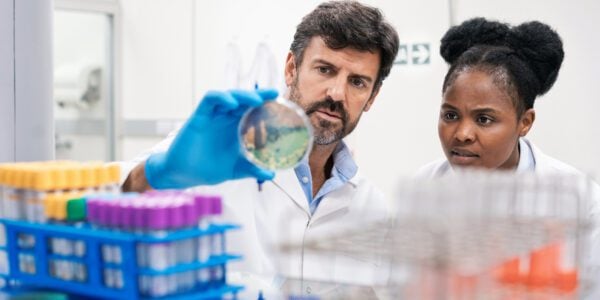
04/10/23
2 min read
Expert reflections on the trends and risks society is facing and the implications for the future
The Nuffield Foundation was established in 1943 during a period of global upheaval. While life in Britain today is very different, our mission remains unchanged: to fund social research that can change lives for the better.
Today’s world is also experiencing seismic shifts. Against a continuing backdrop of disruption and uncertainty, how can we support the research that’s best placed to respond to the challenges of tomorrow?
As part of our 80th anniversary programme, Changing lives for the better, Nuffield Foundation trustees, Professor Ash Amin, Professor Ann Phoenix, John Pullinger and Professor Lorraine Dearden have each written a short provocation on what they regard as the most defining issues of our age. Meanwhile, Fran Bennett, Interim Director of the Ada Lovelace Institute, and Professor David Archard, Chair of the Nuffield Council on Bioethics look toward the near horizon and share what they see in terms of future trends.
Drawing on their collective expertise, they prompt us to think about the urgent questions posed by migration, widening inequalities, weakened institutions and a prescriptive education system, while encouraging us to consider the benefits and risks of rapid breakthroughs in bioscience, artificial intelligence and data-driven technology.
Their reflections, along with those of our partners and stakeholders, will help to inform the Foundation’s strategic priorities in the years ahead.
Get in touch with us to share your thoughts and ideas about our future priorities, too.
Society through the lens of data, artificial intelligence and bioethics
The Foundation established the Nuffield Council on Bioethics in 1993, and the Ada Lovelace Institute in 2018. Both were set up in response to the scale of scientific breakthroughs and technological progress, and the capacity of both to impact our everyday lives.
Digital solutions have become an essential part of how the world works, and technology sits at the interface of people and social processes in a way that cannot be ignored. In her short essay, Fran Bennett describes the potential of artificial intelligence to deliver advancements and opportunities, as well as amplify inequalities. In his, David Archard illustrates how genomics and scientific developments have altered the limitations of humanity. Both stress the pressing need for a strong ethical and regulatory landscape, grounded in evidence, to ensure that benefits are widely and more fairly distributed and risks are managed.
These short essays reflect on the multidimensional inequalities faced by society, and the emerging social, economic and technological trends likely to impact our future. In response to these emerging trends, the Foundation is consulting with partners and stakeholders about its future research priorities. Contact us or hear more about the Changing lives for the better programme from CEO Tim Gardam.
Download accessible PDFs
Explore our anniversary programme









